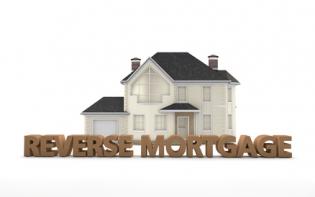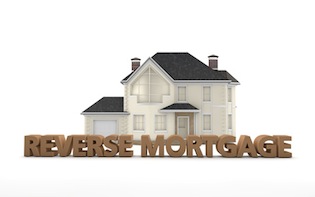
Gone are the days when the only recourse for elderly parents was to live and be taken care of by their children. For the elderly who do not have a substantial income or a pension to fall back upon and are reluctant to stay with their children, there is indeed a very good solution. Those who have self owned property, can opt for the reverse mortgage option for a steady source of monthly income. Here is Part I of our three part series by Gargi Banerjee.
What is reverse mortgage?
Take the case of 65-year-old Partha Sarathi Ganguly, who has lived in his independent home for more than 40 years--when his only daughter got married in 2012, the Ganguly couple found it difficult to cope with mounting medical expenditures owing to a heart condition that Mrs Ganguly suffers from. Unwilling to ask his daughter for monetary assistance, Mr Ganguly approached his trusted banker at State Bank of India for a solution, who suggested a reverse mortgage scheme to him, that Mr Ganguly was happy to avail of.
To put it in a nutshell, a reverse mortgage is the exact opposite of a conventional home loan. A senior citizen (borrower) can pledge a self-owned property to a bank and receive a periodic payment against it. When the borrower pledges his property to the bank, the latter arrives at its value depending upon the condition of the property, its location and demand for the property in consideration of the current property prices.
According to RV Verma, Chairman and Managing Director, National Housing Bank (the body that regulates housing finance in India), the product is “superior in terms of return as well as time duration”. He feels that “with real estate being the biggest asset in the hands of many senior citizens who would have perhaps put in their lifetime savings to build such properties” the time is ripe to popularise the product with greater force in India.
The eligibility criteria:
- Owner of the property should be above the age of 60.
- If the spouse is a co-applicant, the latter should be at least 58 years old.
- The property should be self-acquired/owned.
- The property should be the permanent residence of the borrower.
- The titles and paperwork should be clearly indicative of ownership of the borrower.
- The property should be at least 20 years of age or older.
How does it work?
Based on the assessment of the bank, and a consideration of interest costs and price fluctuations the lender decides upon a quantum of payment that can be monthly or quarterly as per the requirement of the borrower. This is called the “reverse EMI”. The borrower receives over a fixed tenure of the loan. In any reverse mortgage scheme, a re-evaluation of the property is undertaken every five years. If the value of the property increases, the borrowers get the option of increasing the loan amount. The incremental amount is then disbursed to the borrower as a lump sum.
More in Part II & III.


